Get ready for some updates
Warning: This post contains spoilers for both the 1991 and 2017 versions of Beauty and the Beast.
Disney’s live-action adaptation of Beauty and the Beast, which hits theaters March 17, is largely faithful to the beloved 1991 animated film: A snobby prince (Dan Stevens) is cursed by an enchantress and turned into a hideous beast until he can learn to love and be loved in return. But a few key changes—from delving into Belle’s (Emma Watson) background and motivations to presenting Disney’s first openly gay character—help bring the new film into the 21st century.
Both of Belle’s parents play a role
[time-brightcove not-tgx=”true”]
There’s no explanation for why Belle’s mother doesn’t appear in Disney’s 1991 animated movie, but her absence anchors the plot of the new live-action film. Although Belle’s father, Maurice, is still too sad to talk about his late wife, Belle’s deepening relationship with the Beast helps her discover that her mother’s death is the reason she came to live a boring, provincial life. Through an enchanted book that transports the Beast anywhere in the world (another new addition), Belle finds out her parents lived in Paris when she was a baby. She quickly learns that her mother died tragically of the plague, forcing Maurice to flee to the village with his daughter. This backstory adds dimension to Belle’s character, providing a foundation for her to better understand the Beast and his life.
Belle actively tries to escape

As soon as she’s shown her room in the Beast’s castle, Belle pieces together a rope to use for escape. Although Belle rails against the Beast for taking her captive in both movies, Watson’s portrayal of the character at least tries to leave. In a recent interview with Entertainment Weekly, Watson defended the Belle against common critiques that the character has Stockholm Syndrome:
“That’s where a prisoner will take on the characteristics of and fall in love with the captor. Belle actively argues and disagrees with [Beast] constantly. She has none of the characteristics of someone with Stockholm Syndrome because she keeps her independence, she keeps that freedom of thought.”
Belle’s an inventor now

In the new movie, Belle is an inventor—just like her father, who also dabbles as an artist. Before being imprisoned in the Beast’s castle, she invents a handy apparatus that functions like an early washing machine, and uses the time it saves to teach a young girl in the village to read. This modern move gets her in trouble with the villagers, who mock her and destroy the invention.
MORE The Feminist Message of the New Beauty and the Beast Has Always Been Part of the Story
The Beast is also a bookworm

Although the animated movie portrayed him as shy and slow to read, the Beast in the new movie is excited to share the books he has read with Belle and even playfully mocks her love for reading romances like Shakespeare’s Romeo and Juliet. Later, Belle catches the Beast reading King Arthur and His Knights of the Round Table, which she affectionately points out also qualifies as a romance.
The Beast gets more of a backstory

The live-action film opens with a party at the castle when the Beast is still a prince and his subjects are still humans. Still, the events that occur to turn him into a beast are the same.
Disney has an “exclusively gay moment”

The live-action version of the film features Disney’s first openly gay character. Much has been made of director Bill Condon’s revelation that LeFou (Josh Gad) has a crush on Gaston (Luke Evans), from celebrations on social media to calls to boycott the movie in both the U.S. and abroad. But this reveal isn’t a total surprise—LeFou’s affection for Gaston has always been apparent, even if the 1991 animated movie didn’t explicitly address his sexuality. The real nod to progress might actually come near the end of the movie when Madame Garderobe attacks three male villagers by dressing them as women. Two of them freak out, while the third seems infinitely happier in a dress.
MORE Ewan McGregor Has No Time for Fuss Over Beauty and the Beast‘s ‘Gay Character’
Chip is an only child

Chip, the little boy turned teacup, sleeps in a cupboard with his brothers and sisters in the animated film. In the new version, he is Mrs. Potts’s only child.
There’s new music

Alan Menken composed four new tunes for the musical, including a solo moment for the Beast called “Evermore,” which he sings after letting Belle go free. Other new songs on the soundtrack include Celine Dion’s “How Does a Moment Last Forever,” Audra McDonald’s “Aria” and “Days in the Sun,” when the objects in the castle recall what it was like to be human.
The “grey stuff” gets downgraded

During “Be Our Guest,” Lumière offers a platter of treats—including the “grey stuff”—to Belle, but unlike in the animated film, she doesn’t actually sample it. A real-life version of the dessert is available at Disney World and there are countless recipes for it online.
There’s a new character

Stanley Tucci plays Maestro Cadenza, a harpsichord and love interest to Audra McDonald’s Madame Garderobe.
Gaston leaves Maurice to die

In the animated movie, Gaston pays a man to take Maurice to a mental hospital against his will after Belle refuses his advances. In the live-action version, his betrayal is far worse. He attempts to help Maurice retrieve Belle from the castle—if only to make himself look better. But when complications arise on the way to the castle, Gaston and LeFou abandon the carriage and tie Maurice to a tree in the forest, leaving him—quite literally—to the wolves.
The Enchantress plays a bigger role
Disguised as an old woman, the Enchantress curses the Beast at the beginning of the movie. But she remains in the village and shows up at a crucial moment near the end of the film.
-
Both of Belle’s parents play a role
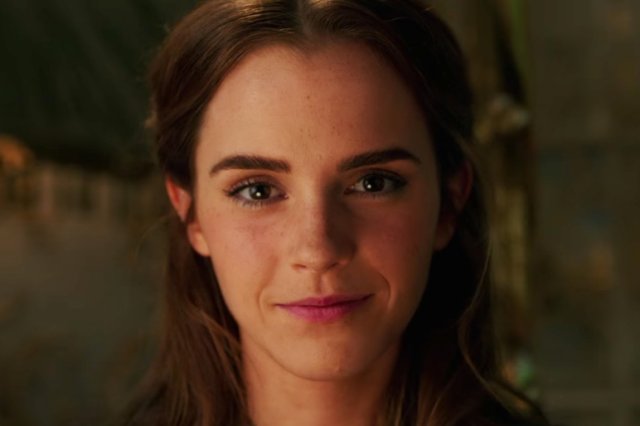
Walt Disney Studios Motion Pictures There’s no explanation for why Belle’s mother doesn’t appear in Disney’s 1991 animated movie, but her absence anchors the plot of the new live-action film. Although Belle’s father, Maurice, is still too sad to talk about his late wife, Belle’s deepening relationship with the Beast helps her discover that her mother’s death is the reason she came to live a boring, provincial life. Through an enchanted book that transports the Beast anywhere in the world (another new addition), Belle finds out her parents lived in Paris when she was a baby. She quickly learns that her mother died tragically of the plague, forcing Maurice to flee to the village with his daughter. This backstory adds dimension to Belle’s character, providing a foundation for her to better understand the Beast and his life.
-
Belle actively tries to escape
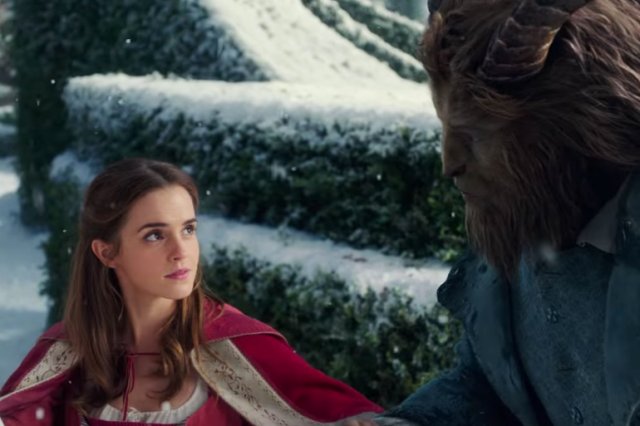
Walt Disney Studios Motion Pictures As soon as she’s shown her room in the Beast’s castle, Belle pieces together a rope to use for escape. Although Belle rails against the Beast for taking her captive in both movies, Watson’s portrayal of the character at least tries to leave. In a recent interview with Entertainment Weekly, Watson defended the Belle against common critiques that the character has Stockholm Syndrome:
“That’s where a prisoner will take on the characteristics of and fall in love with the captor. Belle actively argues and disagrees with [Beast] constantly. She has none of the characteristics of someone with Stockholm Syndrome because she keeps her independence, she keeps that freedom of thought.”
-
Belle’s an inventor now
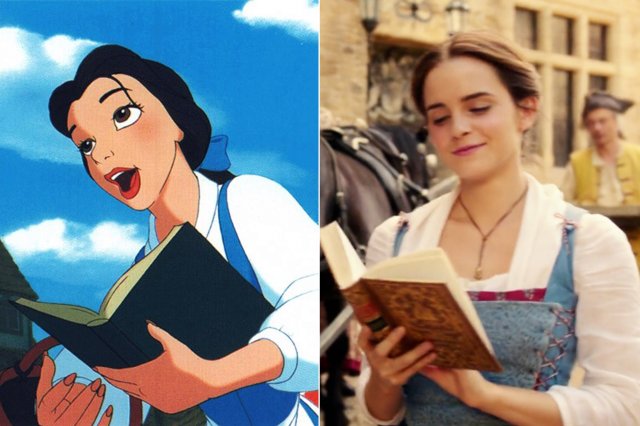
Walt Disney Studios Motion Pictures In the new movie, Belle is an inventor—just like her father, who also dabbles as an artist. Before being imprisoned in the Beast’s castle, she invents a handy apparatus that functions like an early washing machine, and uses the time it saves to teach a young girl in the village to read. This modern move gets her in trouble with the villagers, who mock her and destroy the invention.
MORE The Feminist Message of the New Beauty and the Beast Has Always Been Part of the Story
-
The Beast is also a bookworm
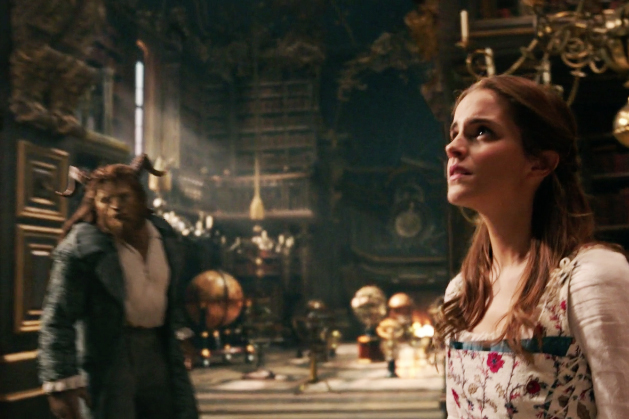
Walt Disney Studios Motion Pictures Although the animated movie portrayed him as shy and slow to read, the Beast in the new movie is excited to share the books he has read with Belle and even playfully mocks her love for reading romances like Shakespeare’s Romeo and Juliet. Later, Belle catches the Beast reading King Arthur and His Knights of the Round Table, which she affectionately points out also qualifies as a romance.
-
The Beast gets more of a backstory
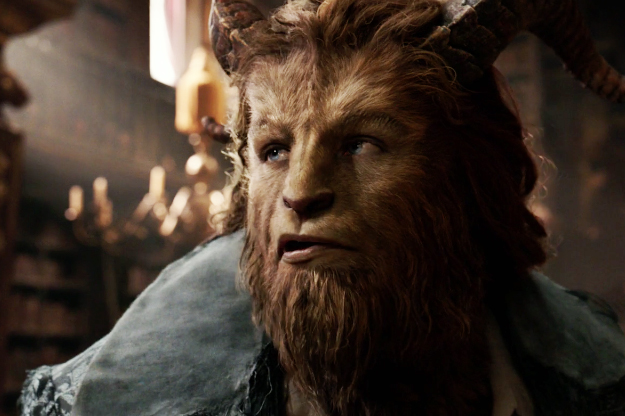
Walt Disney Studios Motion Pictures The live-action film opens with a party at the castle when the Beast is still a prince and his subjects are still humans. Still, the events that occur to turn him into a beast are the same.
-
Disney has an “exclusively gay moment”
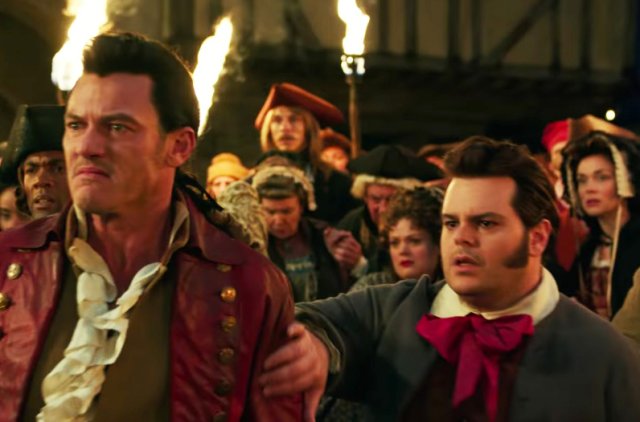
Walt Disney Studios Motion Pictures The live-action version of the film features Disney’s first openly gay character. Much has been made of director Bill Condon’s revelation that LeFou (Josh Gad) has a crush on Gaston (Luke Evans), from celebrations on social media to calls to boycott the movie in both the U.S. and abroad. But this reveal isn’t a total surprise—LeFou’s affection for Gaston has always been apparent, even if the 1991 animated movie didn’t explicitly address his sexuality. The real nod to progress might actually come near the end of the movie when Madame Garderobe attacks three male villagers by dressing them as women. Two of them freak out, while the third seems infinitely happier in a dress.
MORE Ewan McGregor Has No Time for Fuss Over Beauty and the Beast‘s ‘Gay Character’
-
Chip is an only child
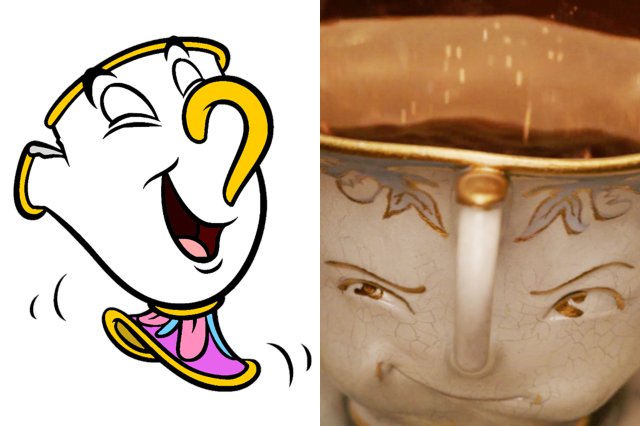
Walt Disney Studios Motion Pictures Chip, the little boy turned teacup, sleeps in a cupboard with his brothers and sisters in the animated film. In the new version, he is Mrs. Potts’s only child.
-
There’s new music
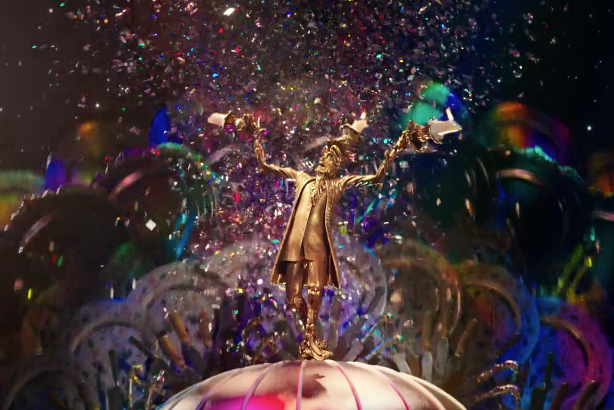
Walt Disney Studios Motion Pictures Alan Menken composed four new tunes for the musical, including a solo moment for the Beast called “Evermore,” which he sings after letting Belle go free. Other new songs on the soundtrack include Celine Dion’s “How Does a Moment Last Forever,” Audra McDonald’s “Aria” and “Days in the Sun,” when the objects in the castle recall what it was like to be human.
-
The “grey stuff” gets downgraded
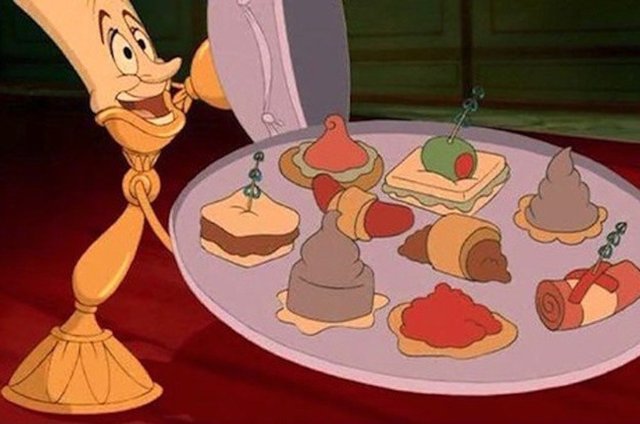
Walt Disney Studios Motion Pictures During “Be Our Guest,” Lumière offers a platter of treats—including the “grey stuff”—to Belle, but unlike in the animated film, she doesn’t actually sample it. A real-life version of the dessert is available at Disney World and there are countless recipes for it online.
-
There’s a new character
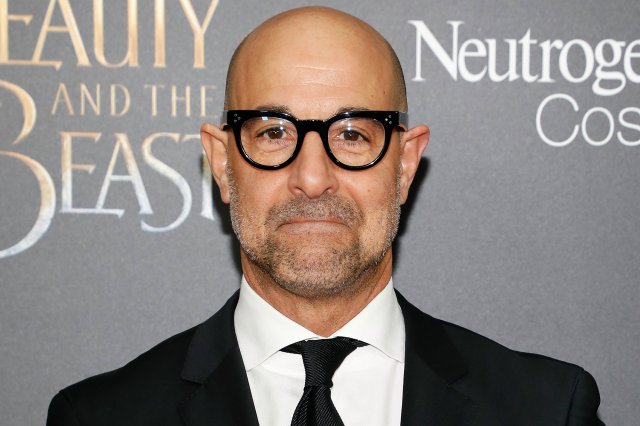
Taylor Hill—Getty Images Stanley Tucci plays Maestro Cadenza, a harpsichord and love interest to Audra McDonald’s Madame Garderobe.
-
Gaston leaves Maurice to die
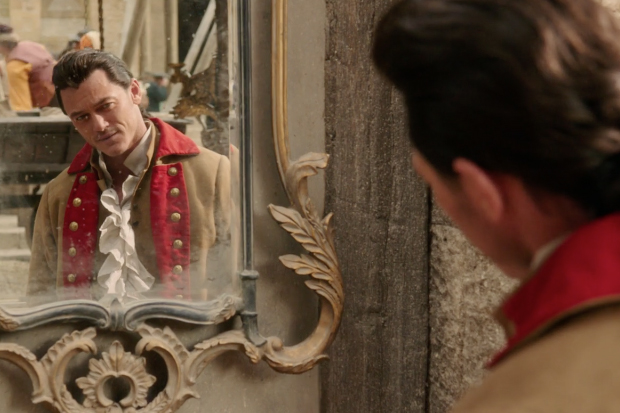
Walt Disney Studios Motion Pictures In the animated movie, Gaston pays a man to take Maurice to a mental hospital against his will after Belle refuses his advances. In the live-action version, his betrayal is far worse. He attempts to help Maurice retrieve Belle from the castle—if only to make himself look better. But when complications arise on the way to the castle, Gaston and LeFou abandon the carriage and tie Maurice to a tree in the forest, leaving him—quite literally—to the wolves.
-
The Enchantress plays a bigger role
Disguised as an old woman, the Enchantress curses the Beast at the beginning of the movie. But she remains in the village and shows up at a crucial moment near the end of the film.